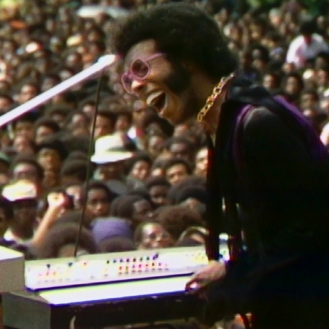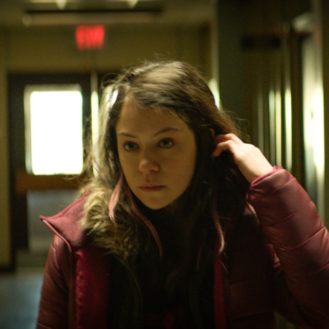Despite a cast that boasts the talents of Toni Collette (The Sixth Sense, Little Miss Sunshine), Harvey Keitel (The Grand Budapest Hotel, Bugsy, Pulp Fiction), Tom Hughes (Cemetery Junction), and Rossy de Palma (Julieta, Kika), Madame is a flat and charmless romantic comedy.
Written and directed by French playwright, novelist, and filmmaker Amanda Sthers (Je vais te manquer), Madame follows the wealthy, middle-aged Anne and Bob Fredericks (Keitel and Collette) who move into a manor house in Paris in an attempt to revitalize their stagnant marriage. When an unexpected visit from Bob’s son (Hughes) results in an unlucky thirteen guests for a dinner party, Anne decides to disguise the family’s Spanish maid, Maria (de Palma), as a wealthy heiress to round out the numbers. The situation in the Frederick household becomes increasingly complicated when Maria elects to pursue a romantic relationship with one of the guests she meets at the party.
Keitel is immediately likable as Bob, an aging aristocrat forced to sell pieces of his art collection to keep the family’s extravagant lifestyle afloat. Though the bickering between his character and Collette’s Anne is painfully cliché, Keitel manages to bring warmth and humor to the otherwise lifeless script. Collette doesn’t fare quite as well. Her portrayal of Bob’s beauty-obsessed second wife is over-the-top in its rigidity. Not only is Anne rendered completely unsympathetic, she borders on becoming outright annoying. A similar fate befalls de Palma’s Maria: though her character is given more depth and intimate moments than any other, her naivety and stubborn optimism remain more clownish than endearing.
Sthers has a history of writing and directing for the stage which could be the root cause of many of the problems in Madame. Every scene oozes exaggerated theatricality and there is something Shakespearean about the contrived dinner party plot of confused identities. Anne isn’t shown to be superstitious at any other point in the film, making her profound aversion to having thirteen guests at her dinner party rather unconvincing, a suspension of disbelief that would perhaps have been more smoothly executed on the stage.
Madame’s lack of subtlety is also a missed opportunity. The film’s story contains all the elements of an insightful meditation on contemporary issues of social class, immigration, and gender. Unfortunately, these pieces never come together in a meaningful way and social commentary is cast aside in favour of well-worn jokes about British, American, and French cultural stereotypes. I don’t mean to say that films must be political to be enjoyable, but if they aren’t going to make you think, they should at least make you laugh and in the end, Madame does neither.
**********
Do You Tweet? Follow These Tweeple:
Shannon Page: @ShannonEvePage





Be the first to comment